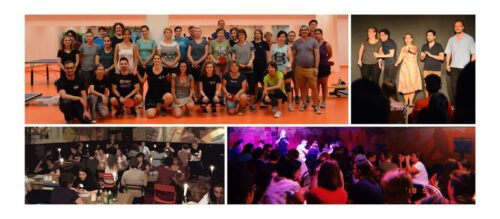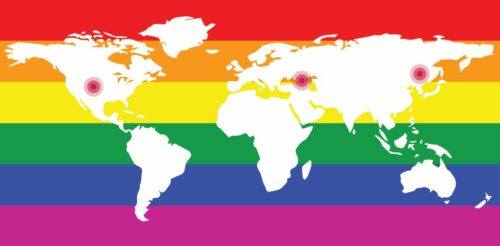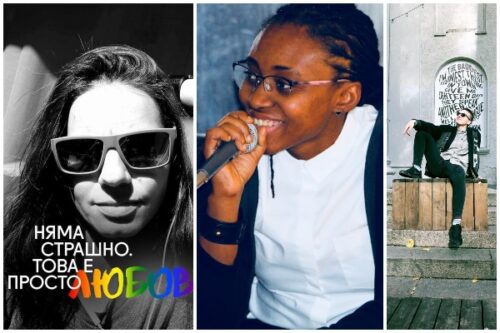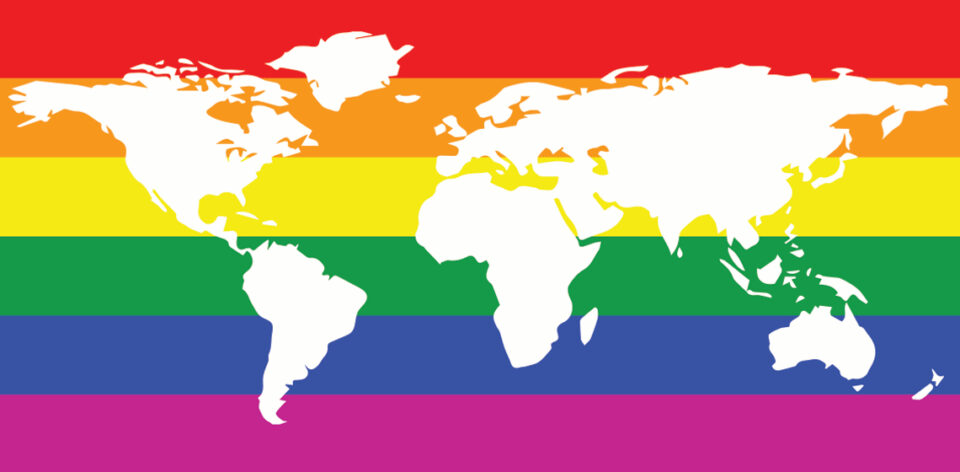February is LGBT History Month in Hungary. As part of this, qLit also takes a look back.
How long has the organization been running?
On June 1, it will be 5 years since our first article was published and qLit entered the online space. A year later, we launched our first live program, table tennis, followed by other events: speed dating, pub quizzes and then improv theater. Incredibly, we’ve been running for half a decade now, even if almost two of those years were during covid, when we were unfortunately much more limited. We didn’t organize any programs, just a few in the summer, but the editorial team – the articles, with the interviews included – kept going, crisis on or not.

How long has this specific interview series existed?
Two months after qLit’s inception, in August 2017 the first interview was published, and since then there has been one every month. So, we’re very proud of that, because this series, with almost 50 editions already, is basically a pillar of our magazine.
What was the concept of the interviews?
The goal of the interview series was to give voice to as many stories as possible, in order to be able to paint a more colorful – and more realistic – picture of our community.
What are the main takeaways?
That the situation of LGBTQ people, or lesbians specifically, is much more complicated than we might first think. You can’t say that the grass is greener anywhere outside of Hungary, in other words, it is not true that it is better to live anywhere but in Hungary. Even within Europe this is not the case. In the first place, you can’t even generalize by talking about “Hungary”. There are huge differences between the countryside and the city (especially the capital), and this came through in every single interview from all around the world. Whether you live in Italy, Germany or Georgia, the situation for LGBTQ people in the capital is much more favorable. Even in China, we heard from one of our interviewees, there are “opportunities” in Beijing, despite the fact that overall, the country doesn’t have a good image regarding human rights. On the other hand, there is the US, which many people think is an LGBTQ paradise, but we have had several articles pointing out that it really depends on the state or even the city what the real situation is. In fact, some people have fled all the way to Hungary to feel they can live freely.

Is there a difference between talking about the LGBTQ situation in general and talking specifically about the experiences of lesbians?
Yes, very much so. On the one hand, the patriarchal order is still our global reality. There were very few interviewees who reported that they know of more, or at least as many lesbian bars in their city as gay bars. In fact, the tendency is that there are not many specifically lesbian bars because they are still not proving to be sustainable. Women still earn significantly lower than men. And we cannot ignore the immense amount of violence against women either.
On the other hand, I should also note that society is more forgiving of female same-sex relationships than male ones. This is partly due to pornography and partly to social stereotypes that label touch and tenderness are ‘feminine’. If I hug my girlfriend in the street, it is less “suspicious” than if we were a gay couple.

What about non-cis women?
Most of our interviews showed that they are the most vulnerable members of our community all around the world. For this reason, we can’t find many subjects who would agree to be interviewed in this series which by principle requires participants’ names and photos.
What’s next?
We will continue with the interviews, as well as with the articles in general. And great news is that we will even restart our live programs in the spring. And mark your calendars: the big qLit 5th birthday party is coming up in early June!

